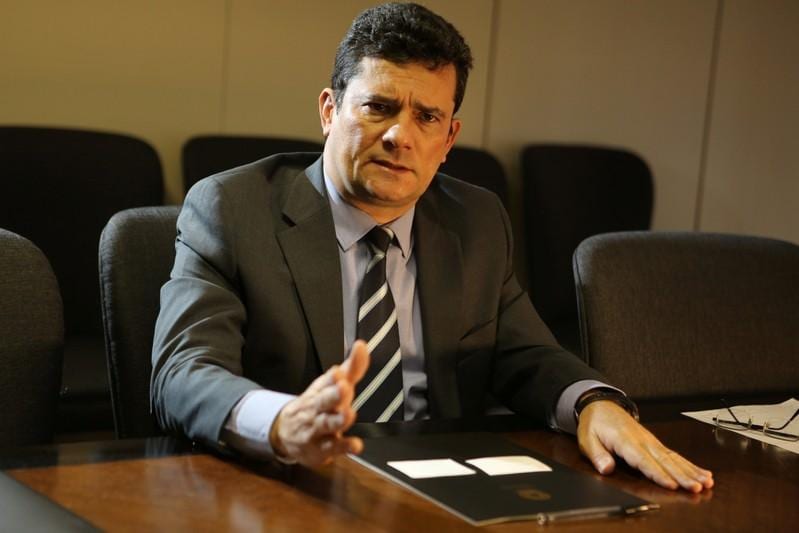
Brazilian Justice Minister Sergio Moro, who oversaw Brazil’s biggest corruption probe as a federal judge, said on Monday he has no interest in elected office and that President Jair Bolsonaro is his candidate for the 2022 election.
“I am not a candidate for president in 2022. The government candidate, if he wants it, will be Bolsonaro,” Moro said, playing down speculation that his move into government was preparation for a political career of his own.
Moro’s popularity has been dented by reports he collaborated with prosecutors investigating jailed former President Luiz Inacio Lula da Silva, based on leaks of their alleged chats published by news website the Intercept and Brazilian media.
Glenn Greenwald, are not being investigated about the leaks, Moro said, although police are looking into those who apparently hacked authorities’ phones.
Moro denied that the leaks had undermined his credibility as Brazil’s top crime fighter. “I’m not in government to compete in a popularity contest or worry about my image,” he said.
Critics and even some supporters of Moro’s anti-graft efforts have expressed concerns about messages suggesting the former judge had inappropriately steered prosecutors’ efforts on cases where he eventually cast verdicts and issued sentences.
Moro disputed the authenticity of the messages published by The Intercept and added that he saw nothing “abnormal” about a Brazilian judge communicating with prosecutors in a criminal investigation.
“What we had here was exacerbated sensationalism that was aimed at annulling criminal convictions, especially that of ex-president Lula,” Moro said.
He said he took the job in Bolsonaro’s government to consolidate gains in the fight against rampant corruption in Brazil and take on organized crime.
But the anti-crime package he unveiled in February is on the back burner in Congress, where the government has given priority to passing an overhaul of Brazil’s pension system and other measures to close a huge budget deficit.
Moro cast his bill as an economic priority too, arguing that high crime rates in Brazil were hurting Latin America’s largest economy by putting off investment and scaring away tourism.
Moro defended his record so far in battling organized crime by isolating gang leaders in federal penitentiaries, investing in public security and better coordinating agencies.
One of the results: federal police have seized 39 tonnes of cocaine in the first five months of this year, compared to 23 tonnes in the same period of 2018. Moro credited the increase in seizures to stepped up enforcement, but acknowledged that greater volumes of the drug are entering Brazil from Bolivia, Peru and, increasingly, Colombia, mostly en route to Europe.